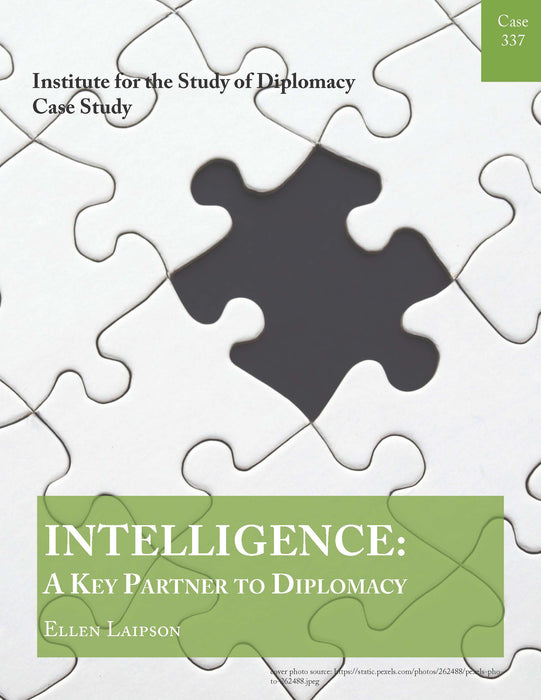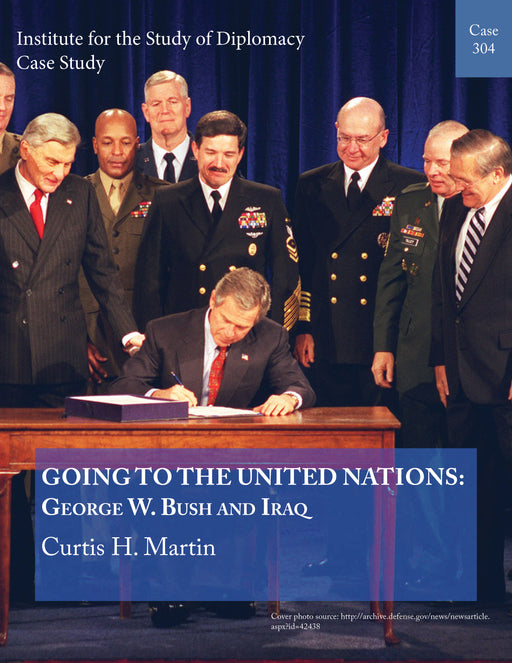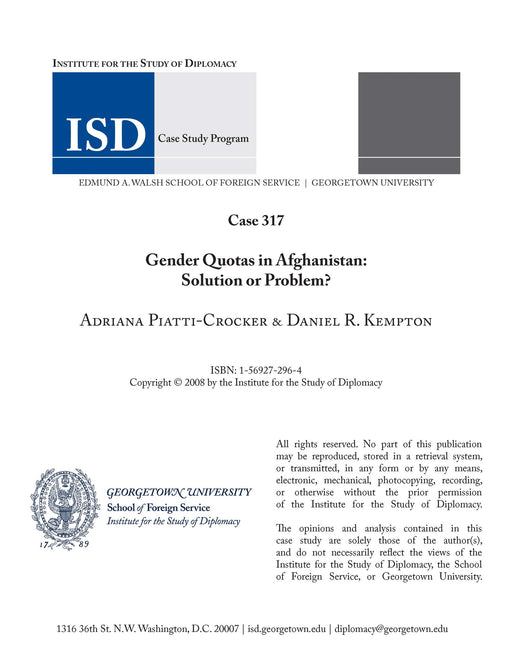Case 337 - Intelligence: A Key Partner to Diplomacy
Laipson, Ellen
This case study examines the nexus between intelligence gathering and the practice of diplomacy. Both are vital components of US foreign policy, yet the full range of US intelligence activities is often little understood. Intelligence officers are tasked with providing neutral input to help advise and inform US foreign policy, and help diplomats implement policy and advise the executive branch. Successful policy implementation often depends on the quality and quantity of intelligence available to diplomats. This study provides a conceptual background for understanding the intelligence-diplomacy relationship and introduces all the agencies and units active in the US intelligence effort. To illustrate the wide range of interactions between US diplomats and the intelligence community, Laipson includes four historical "mini-cases":
- intelligence briefings during the breakdown of Yugoslavia in 1990
- intel during the 2012 attacks on the US consulate in Benghazi, Libya
- the role of intelligence in arms control and verification measures
- intelligence as a back channel in diplomacy



